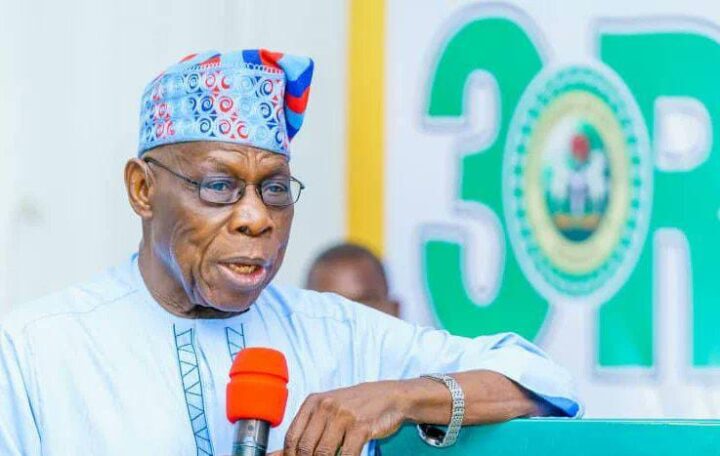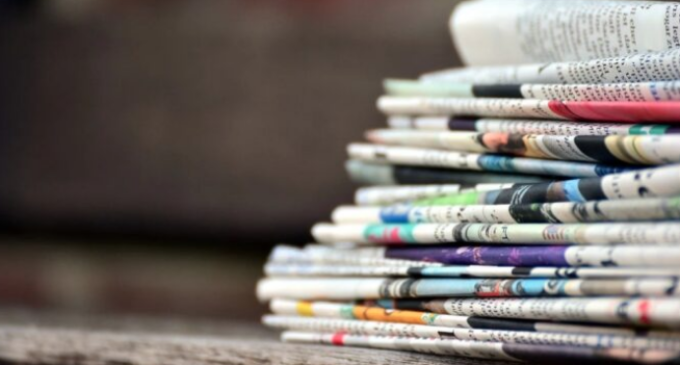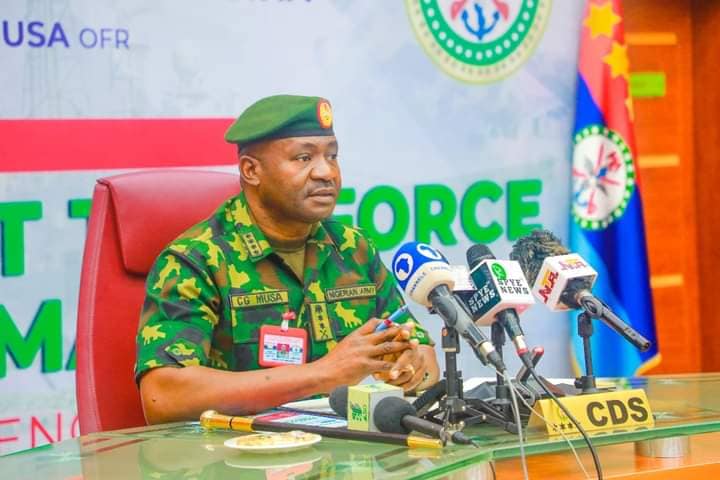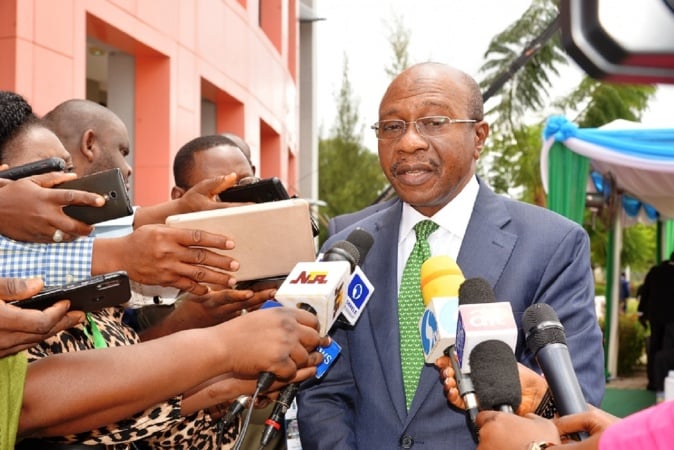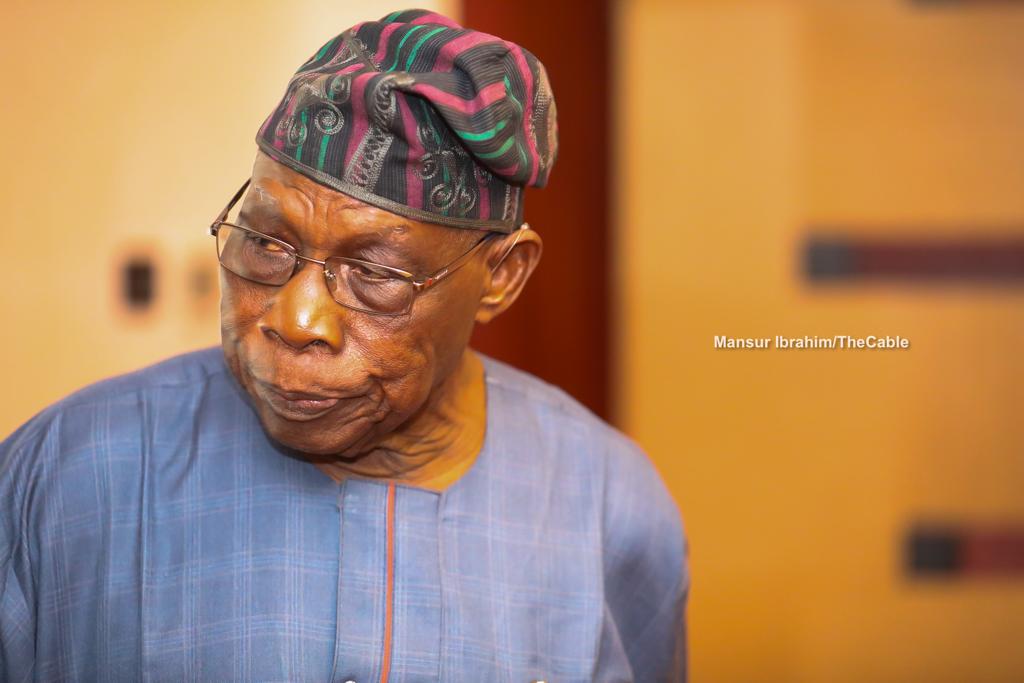The upsurge in military coups in Africa is leading to curious propositions on the suitability of “liberal democracy” on the continent. Questions are being asked as to whether or not we need to tinker with our practice of democracy. In a recent interview with TheCable, former President Olusegun Obasanjo — who led Nigeria as a military ruler and also as an elected president — linked most recent coups to controversial elections and concluded that Africans need to discuss the way forward. He did not suggest any alternative, sure, but he insisted that we must begin to think of one. All attempts to draw him out failed as he scoffed at all examples cited as evidence of Africa’s progress in democracy.
Obasanjo said: “Out of the six countries that have experienced coups (in recent times), three of them are directly from elections. Burkina Faso, Guinea Conakry, and Gabon that we have just had are directly from elections. The other three are indirect, if you like.” He said he started noticing the trend in Guinea Conakry when Col Mamady Doumbouya overthrew President Alpha Condé in 2021, recounting his meetings with top officials of the junta. “I listened to them and concluded that we had a new phenomenon on our hands. I realised that they had the support of the youths and were not thinking of staying in power for four, five years. They are in for a generation,” Obasanjo recalled.
I do not agree with Obasanjo’s assertion that “the liberal type of democracy as practised in the West will not work for us”. For starters, democracy is a political system in which a government is periodically elected by the people and/or their representatives. In a democracy, there are constitutional guarantees of universal suffrage, rule of law, checks and balances, and fundamental human rights, such as freedom of speech and freedom of association, etc. Free and fair elections are central to constitutional democracy. There should be no intimidation of voters or political opponents. There should be no material inducement of voters and electoral officials. These are basic tenets.
Does Nigeria meet the barest requirements to be called a liberal democracy? After all, we run a multiparty system, which political scientists regard as a hallmark of democracy because it institutes the principles of freedom of choice and diversity of ideas. If there is only one party in the system, the aim of representative democracy is undermined. Also, we hold regular elections — since 1999, we have had a general election every four years. Minus hitches here and there, Nigerians have largely exercised their franchise. We also have democratic institutions, such as the legislature, the judiciary and the media. But can we truly say we run a liberal democracy like the West? That is the question.
Advertisement
In Nigeria, the use and misuse of state power and patronage is a major obstacle to democratisation. There are a million examples, but the most recent would be that of Mr Wale Adedayo, chairman of Ijebu East LGA, Ogun state, who accused Prince Dapo Abiodun, the governor, of hijacking the funds meant for councils. Councillors from Ijebu East thereafter apologised to Abiodun. Meanwhile, Adedayo was arrested and detained by the Department of State Services (DSS), which should ordinarily be dealing with security threats. He has now been impeached as council chairman. This is authoritarianism. In a liberal democracy, “as practised in the West”, there is room for dissent.
This calls to mind the seminal essay written by Steven Levitsky and Lucan A. Way entitled ‘The Rise of Competitive Authoritarianism’ (Journal of Democracy, July 2002). They did intellectual justice to the theme: ‘Elections without Democracy’. Any Nigerian who desires to understand the nature and texture of our brand of democracy would do well to read the essay, which the authors further developed into a book, published in 2010. They wrote that the post-Cold War world “has been marked by the proliferation of hybrid political regimes” particularly in Africa and the former Soviet Union, where many regimes “have either remained hybrid or moved in an authoritarian direction”.
They postulated: “Analyses frequently treat mixed regimes as partial or ‘diminished’ forms of democracy, or as undergoing prolonged transition to democracy. Such characterisations imply that these cases are moving in a democratic direction. Yet… this is not the case.” They termed it ‘Competitive Authoritarianism’, where “formal democratic institutions are widely viewed as the principal means of obtaining and exercising political authority. Incumbents violate those rules so often and to such an extent, however, that the regime fails to meet conventional minimum standards for democracy… they may be better described as a (diminished) form of authoritarianism.”
Advertisement
State institutions, such as security agencies and the legislature, are deployed to satisfy the whims of incumbents. Levitsky and Way noted: “Although incumbents in competitive authoritarian regimes may routinely manipulate formal democratic rules, they are unable to eliminate them or reduce them to a mere facade. Rather than openly violating democratic rules (for example, by banning or repressing the opposition and the media), incumbents are more likely to use bribery, co-optation, and more subtle forms of persecution, such as the use of tax authorities, compliant judiciaries, and other state agencies to ‘legally’ harass, persecute, or extort cooperative behaviour from critics.”
In “competitive authoritarianism”, there are four arenas of “democratic contestation”, namely elections, legislature, judiciary and media. “In competitive authoritarian regimes… elections are often bitterly fought. Although the electoral process may be characterized by large-scale abuses of state power, biased [government] media coverage, (often violent) harassment of opposition candidates and activists, and an overall lack of transparency, elections are regularly held, competitive (in that major opposition parties and candidates usually participate),” they wrote, adding that although legislatures tend to be weak, “they occasionally become focal points of opposition activity.”
My reading of this essay within the Nigerian nay African context is that we have not been practising liberal democracy. What we have been practising in the main is “competitive authoritarianism” as well articulated by Levitsky and Way. It is, therefore, out of place to conclude that liberal democracy will not work in Africa as “it does in Western societies” when we have not given it a try. A system where a council chairman cannot ask a governor for the release of statutory allocations is far from liberal. Even if the council chairman was handpicked by the governor, it is nothing short of authoritarianism for the governor to take a legitimate demand as an affront on his majesty.
In Nigeria, conventional wisdom is that “government will always defeat you”. From the time Obasanjo was president, state institutions have been routinely manipulated to intimidate and emasculate anyone considered out of line, regardless of the provisions of the laws and the dictates of democracy. Your passport can be seized, your property sealed or bulldozed, your tax bill inflated, your employment terminated, and so on and so forth, at any time of the day because of your political leaning or dissent. There is no way on earth we can classify this authoritarian culture as liberal democracy and then speed to the conclusion that it is not working or cannot work in Africa.
Advertisement
Another dangerous trend which undermines liberal democracy is the rule of the mob, which has become increasingly disturbing since the advent of social media as a centre for political mobilisation. The first time I noticed this was in the 2015 presidential poll when it was considered a mortal sin to support a particular candidate. It completely went out of hand in the 2023 presidential poll. People were classified as enemy of Nigeria for not supporting a particular candidate. Anyone with a different opinion became a subject of cyber bullying. Yet, freedom of choice is core to liberal democracy. These authoritarian mobsters on social media cannot be classed as democrats, much less liberal.
But what exactly is the option to “liberal democracy”? I am eager to know. Should we return to monarchy, where all powers belong to the king and he can decide to take your wife? Or is this a euphemistic campaign for military coup? I would ordinarily not be amused if not that many of those doing coup-baiting today were among those who talked the most about “Lekki massacre” in Lagos and “Shiite massacre” in Zaria. I take it that many are too young or naïve to understand how military juntas operated in Nigeria in the 1980s and 1990s — or they are so blinded by desperation and bitterness that they can no longer see beyond their nose. Military rule is never an option for me.
My conclusion is that we need more democracy, not less of it. What we need is to tinker with our current practice to make it liberal, more liberal. Democracy regularly faces stress tests even in the most advanced countries — such as the US and the UK — and what we should be discussing in Nigeria is how to deepen our practice, not how to replace it with authoritarianism. Whereas we have taken some important steps since 1999, our democratisation project is still obstructed by the authoritarian mentality of persons in power and the intolerant rhetoric of intolerant social media thugs. This is undermining our basic freedoms: of expression, of choice, of association.
May I, at this stage, point out that liberal democracy is an aspiration. Good can get better. No matter the obstacles on our way, the solution is to keep going, not backslide. I want to live in a society where civil liberties are the norm. I’m aware that other forms of government have yielded fruits elsewhere — China and most Arab countries do not practise liberal democracy and they are recording significant socio-economic progress — but the Nigerian reality has been that neither monarchy nor military dictatorship has turned us to world beaters. We’ve tasted it all. I would vote for democracy, knowing that I have a say in my destiny and I also have options if my choice lets me down. Priceless.
Advertisement
AND FOUR OTHER THINGS…
AUTONOMY ACRIMONY
The Academic Staff Union of Nigerian Universities (ASUU) went on strike under President Muhammadu Buhari seeking, among other things, “university autonomy”. Now, the same union is rejecting “university autonomy” under President Bola Tinubu. That is why I think we are not yet having an honest conversation on the kind of university system we want in Nigeria. It appears, to me, that “autonomy” means funding without accountability. Pardon me but it will not work. Meanwhile, federal universities are already charging high fees without calling them “tuition” and we are still thinking we have tuition-free university education. Let us sit down and reason together. Sincerely.
Advertisement
ECONOMIC DIPLOMACY
I will raise up my hand and say I was one of those who criticised former President Olusegun Obasanjo for going round the world looking for “foreign investors” when he was in office. With the benefit of hindsight, I can see that there is a place for economic diplomacy. Some investors will come on their own but there are those who need assurance from the highest levels. After all, we are the ones who need them. The soundbites from President Bola Tinubu’s strips to India and UAE are music to my ears and I can now only sit in my house and wish words will become actions soon. We need every dollar that can come into Nigeria. We need investments. We need jobs. We need oxygen. Emergency.
Advertisement
AKINTOLA WILLIAMS, RIP
Mr Akintola Williams was one of those accomplished Nigerians I wish to live the kind of lives they lived. Williams lived life to the fullest, attained every height possible in his chosen path, managed to escape controversies and left a legacy that will be there for generations unborn. In 1949, while in the UK, he became the first Nigerian chartered accountant. In 1952, he set up Akintola Williams & Co, reputed as the pioneer chartered accounting firm in Africa. His younger siblings were well known — the late Chief FRA Williams, the first Senior Advocate of Nigeria (SAN) and the late Rev KJ Williams, a cleric. When he died on Monday at 104, Williams left nothing but blessed memories behind. Adieu.
Advertisement
AND FINALLY…
Mr Bayo Adelabu, minister of power, took to X on Thursday to explain the fire outbreak at the Kainji/Jebba transmission station. A lot of the posts were coated in technical terms that an average reader would not understand, even though the idea was to communicate to the public. I guess the posts were drafted by, understandably, a technical person. Nevertheless, the minister should continue to keep us updated via his X handle, preferably in the language we understand. Ironically, the only thing that some of us understood in the posts was the opening line of “fire outbreak with explosion sound”. A friend said he should have added “gboa!!!” to complete the sentence. Hilarious.

